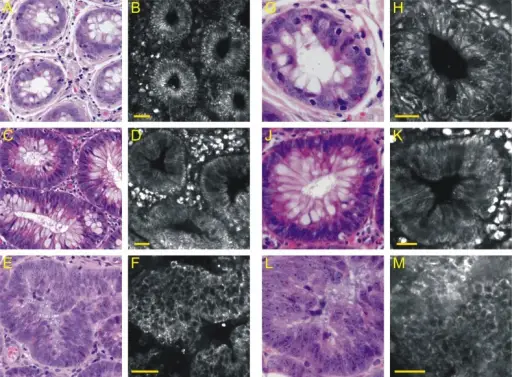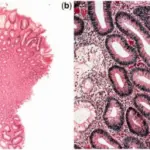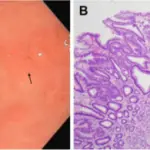Adenomatous polyps are often known as adenomas, a type of polyps that can turn into cancer. Adenomas may form in the mucous membrane of the lining in the large intestine, making them colon polyps.
What is the Pathology of Adenomatous Polyps?
The pathology of adenomatous polyps is:
-Etiology: The cause of adenomatous polyps is: genetics, age, ethnicity, and smoking.
-Genes involved: APC
-Pathogenesis: The sequence of events that lead to adenomatous polyps are not completely known.
-Histology: The histology associated with adenomatous polyps shows their histological appearance as tubular, villous, or tubule-villous adenomas. A tubular adenoma has the histological appearance of branched tubular glands.
How does Adenomatous Polyps Present?
Patients with adenomatous polyps typically are both male and female at mid-teens age. The symptoms, features, and clinical findings associated with adenomatous polyps include: abdominal pain, anemia, constipation or diarrhea, a change in stool color.
How is Adenomatous Polyps Diagnosed?
Adenomatous polyps is diagnosed by colonoscopy, sigmoidoscopy, and biopsy.
How is Adenomatous Polyps Treated?
Adenomatous polyps is treated by surgery.
What is the Prognosis of Adenomatous Polyps?
The prognosis of adenomatous polyps is fair. These are usually harmless however, in some cases, they may be precancerous. If a doctor does not remove them, they may grow and develop into cancer.



